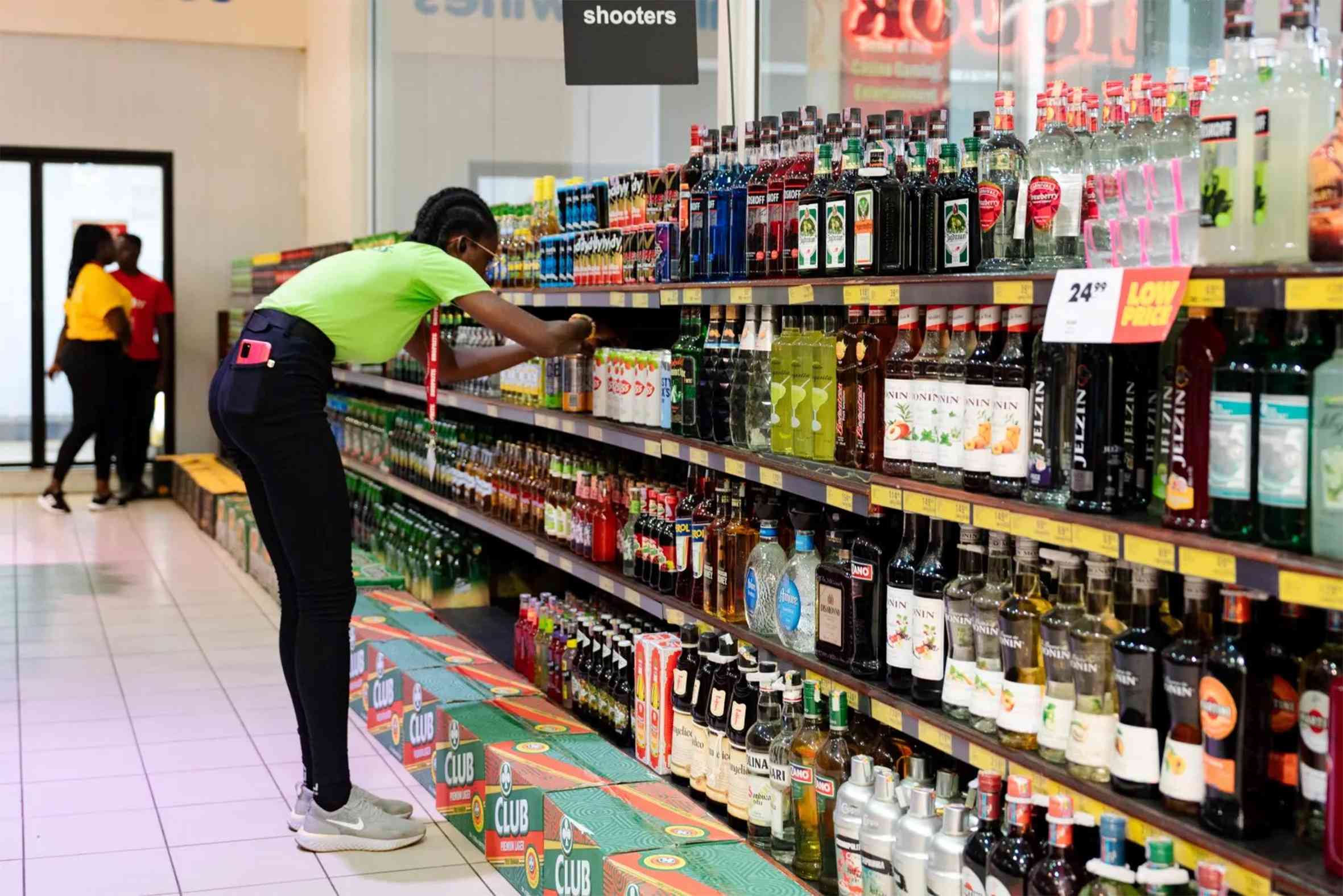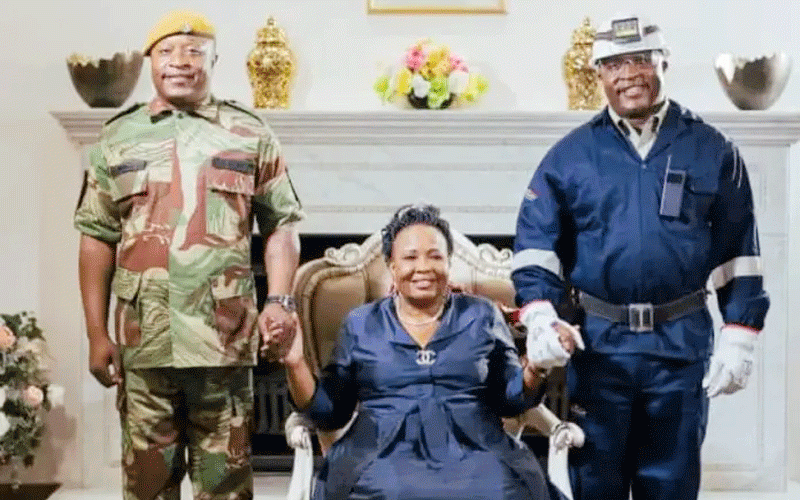
IN 2020, the United Nations Children’s Fund (Unicef) and the World Health Organisation (WHO) published a scientific analysis of the future of the world’s children.
With this analysis they revealed the two main crises threatening the health and future of children in every country: The first is the climate emergency that is rapidly undermining the future survival of all species, and where the likelihood of a world in which all children enjoy their right to health appears increasingly out of reach.
The second existential threat is more insidious: predatory commercial exploitation that is encouraging harmful and addictive activities that are extremely deleterious to young people’s health.
In The Lancet, the world’s most prestigious medical journal, Unicef and the WHO wrote:
“Companies make huge profits from marketing products directly to children and promoting addictive or unhealthy commodities, including fast foods, sugar-sweetened beverages, alcohol, and tobacco, all of which are major causes of non-communicable diseases.”
At the same time as recognition of the harm caused by alcohol companies and their marketing practices is growing, celebrities are accelerating their alcohol promotions.
Jennifer Lopez, Ryan Reynolds, Dua Lipa, Emma Watson and many more have endorsement deals with Big Alcohol or have their own alcohol brands and are promoting them through their social media channels — where they reach millions of children and young people.
The conflict between promoting child rights, health, and development on the one hand and making money through promoting and selling more alcohol on the other hand is embodied by David Beckham. He is a Unicef goodwill ambassador but also collaborates with Big Alcohol giant Diageo.
- Zim health system is in intensive care: How it got there
- Measles threat growing
- Take your child for measles vaccination
- Residents cry foul over Ngozi Mine pollution
Keep Reading
In Ghana, the west African country of 33,5 million people, this conflict is playing out in public as celebrities took the government to court seeking to overturn a ban on alcohol promotions by celebrities.
Alcohol harm in Ghana
In Ghana, children and young people are more protected from domestic and international celebrity alcohol promotions than kids in other countries because the country implements a ban on celebrity alcohol advertisements.
Its Food and Drugs Authority (FDA) is tasked with implementing and enforcing this ban and is now facing opposition from some celebrities in Ghana.
In 2016, according to WHO data, 74% of the adult population abstained from alcohol in the previous year. But those Ghanaians (mainly men) who consumed alcohol, did so heavily: 13 litres of pure alcohol per man, while 7% of men had an alcohol use disorder.
Almost half of all young boys between the age of 15 and 19 who consume alcohol engaged in binge alcohol consumption in Ghana in 2016. According to a Unicef Situation of Adolescents in Ghana (2021) report, substance use among adolescents, particularly tobacco and alcohol, is a public health concern and is linked to chronic health problems later in life.
Ghana ranks among the countries with a higher score of years of life lost due to alcohol. There is grave concern about alcohol’s increasing contribution to Ghana’s non-communicable disease burden. Society in Ghana is facing rising cases of diabetes, hypertension and stroke among others, especially among young people, and health experts have linked this to unhealthy diets, cigarette smoking, alcohol use and physical inactivity.
In 2015, the government decided to take action by placing common-sense limits on alcohol marketing.
The FDA implemented a ban on well-known personalities, including celebrities advertising alcoholic beverages, in a bid to protect children from being misled by celebrities into thinking alcohol is normal and beneficial.
Most of Ghana’s celebrities comply with the ban, but some have expressed their opposition, including Wendy Shay, Shatta Wale, Brother Sammy, Kuami Eugene and Camidoh. They use other forms of alcohol promotion, such as in music videos and movies, and have petitioned for the ban to be revoked.
The government, civil society and community groups across Ghana want to maintain the protections for children and young people against exposure to celebrity alcohol promotions, since young people who are learning about the world and acceptable social behaviour look to celebrities as examples. What kids should not be learning is that alcohol is “acceptable or normal”, and a fun and glamorous way to socialise.
Alcohol endorsements from celebrities increase the risk of alcohol use and harm among teenagers, research shows. For example, in 2019, scientists from the Institute of Social Marketing at the University of Stirling assessed data garnered from 3399 British teenagers between the ages of 11 and 19 who were asked how often they had seen alcohol marketing in the past month.
More than a third recalled seeing alcohol advertising through television, celebrity endorsement and special offers in the week before the survey, and more than a fifth recalled seeing outdoors adverts or adverts on social media.
Using the Alcohol Use Disorders Identification Test-Consumption (AUDIT-C), the researchers determined how susceptible the young people were to alcohol marketing in accordance with their answers. Those with a greater awareness of alcohol marketing were more likely to be “higher-risk” alcohol users.
The participants with high awareness of alcohol marketing reported seeing at least 54 examples in the past month.
The Ghanaian celebrities who are pushing back against the policy claim it has no effect and only limits their income.
The issue is not new in Ghana. It was discussed in 2017 and in 2009, when members of Parliament called on the regulatory authority to put measures in place to reduce alcohol advertisement to protect children. But it has reached a higher level of confrontation and the stakes are higher, too. Large alcohol companies are exploiting the recent trend of celebrity alcohol promotions — and Ghanaian celebrities are eager to participate in the gold rush.
Some celebrities, however, are in full support of the ban.
Nothing new
Celebrity marketing of alcohol brands is not a new phenomenon in Ghana or other countries around the world.
“In 2018, it was estimated that about 40 celebrities were affiliated with alcohol brands, while today there are more than 350 celebrity affiliated brands worldwide,” wrote Chanelle Wilson in Croakey.
As celebrity-led promotion of alcohol is proliferating on digital platforms, where alcohol brands find easier, tailor-made and more harmful ways to directly reach impressionable and vulnerable young people.
In Ghana and the wider African region, and around the world, the alcohol industry is clearly investing in using more celebrity endorsements for alcohol brand promotions – and they want returns on those investments, meaning more alcohol sales, consumption and profits. For countries like Ghana this means more harm and costs due to alcohol.
Given the state of Ghana’s developmental and public health challenges, celebrities could be using their platform to educate and spread health promotion messages, rather than engaging in what Unicef calls “predatory commercial exploitation”.
Real action is urgently needed to protect children and young people on digital platforms from alcohol marketing, which easily crosses borders. Ghana might be an example of what countries can do.
But better and internationally coordinated, government-led regulation of alcohol marketing is needed, independent of the alcohol industry, to better reflect community standards and stop the bombardment of children and at-risk groups with alcohol promotions.
In their 2020 analysis, the WHO and Unicef planned to lay the foundations for a new global movement for child health. Among their high-level recommendations to secure the future of the world’s children, they include regulation of alcohol marketing. Daily Maverick
Sperkova is president of Movendi International, a global movement working to prevent, reduce and curb all aspects of harm caused by alcohol and other drugs. Musah is executive director of programmes at Vision for Alternative Development Ghana, which promotes alternative initiatives and supports development in all levels of society, advocating against the consumption and use of unhealthy commodities (tobacco, alcohol, etc) and illicit drugs and narcotic substances.






